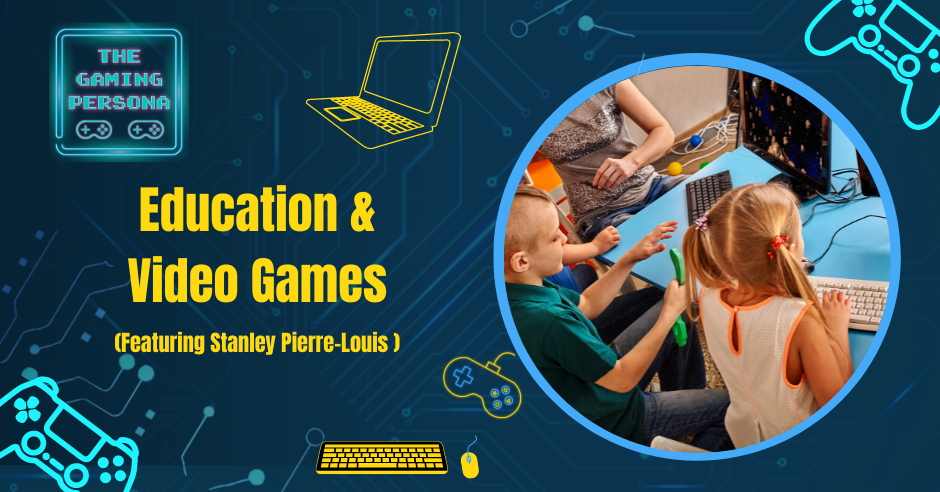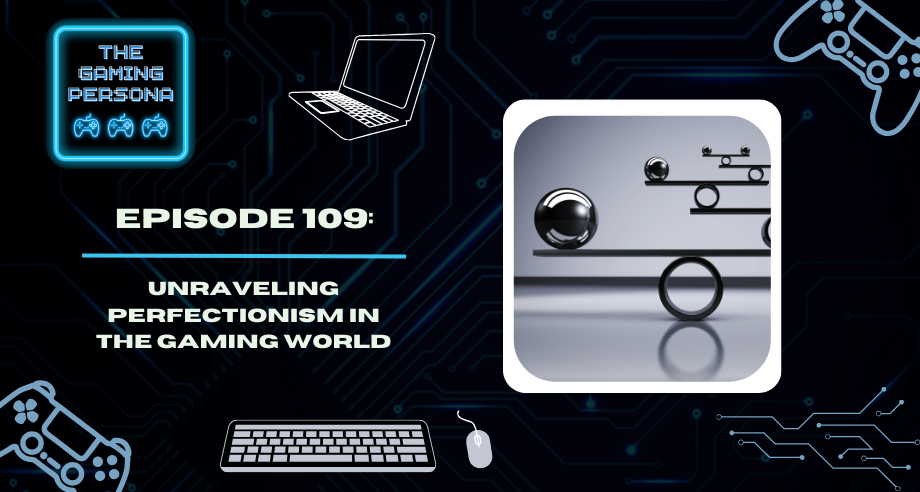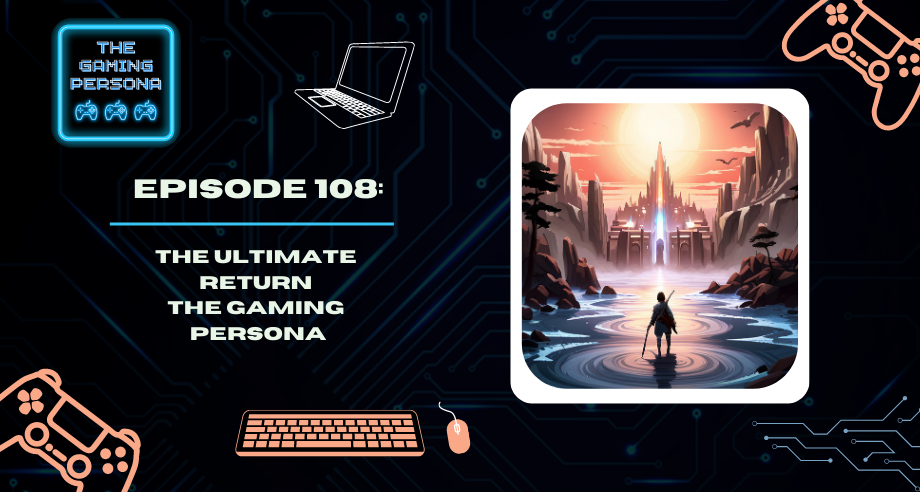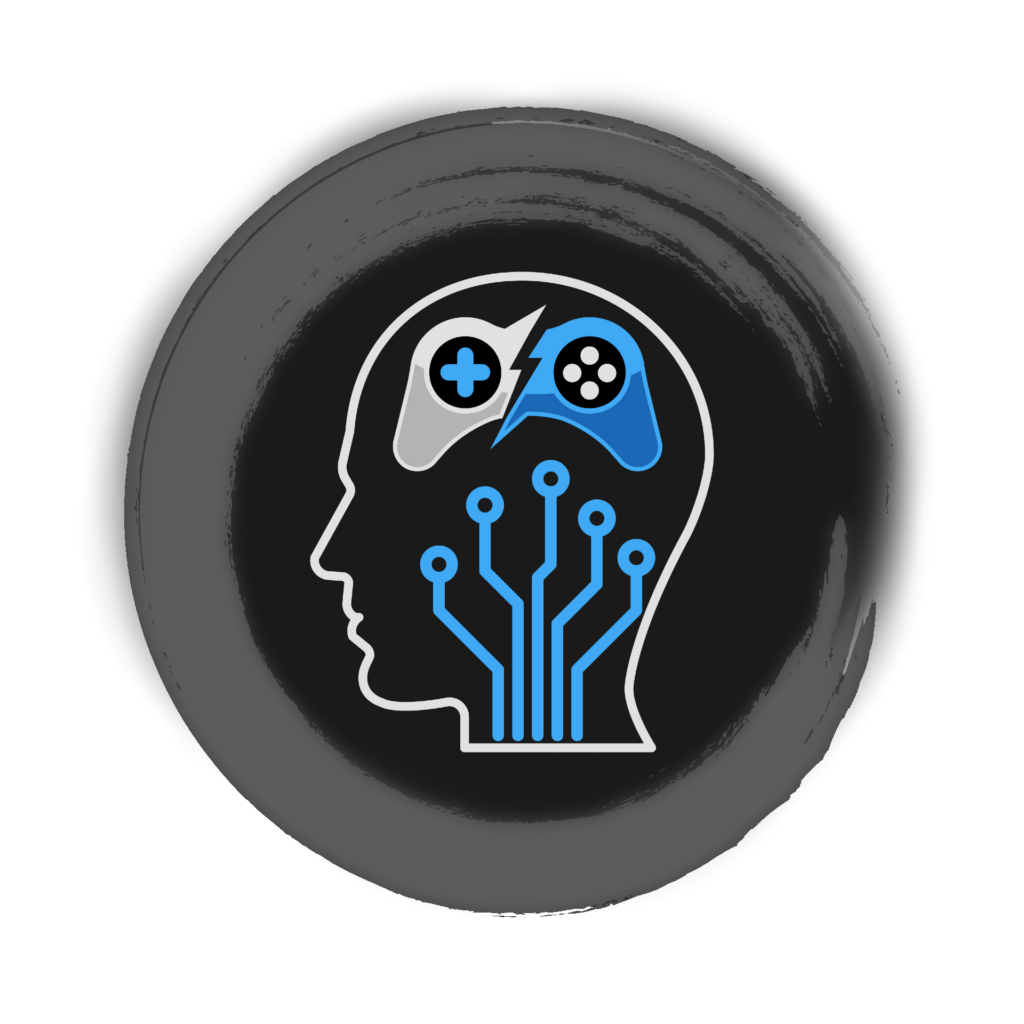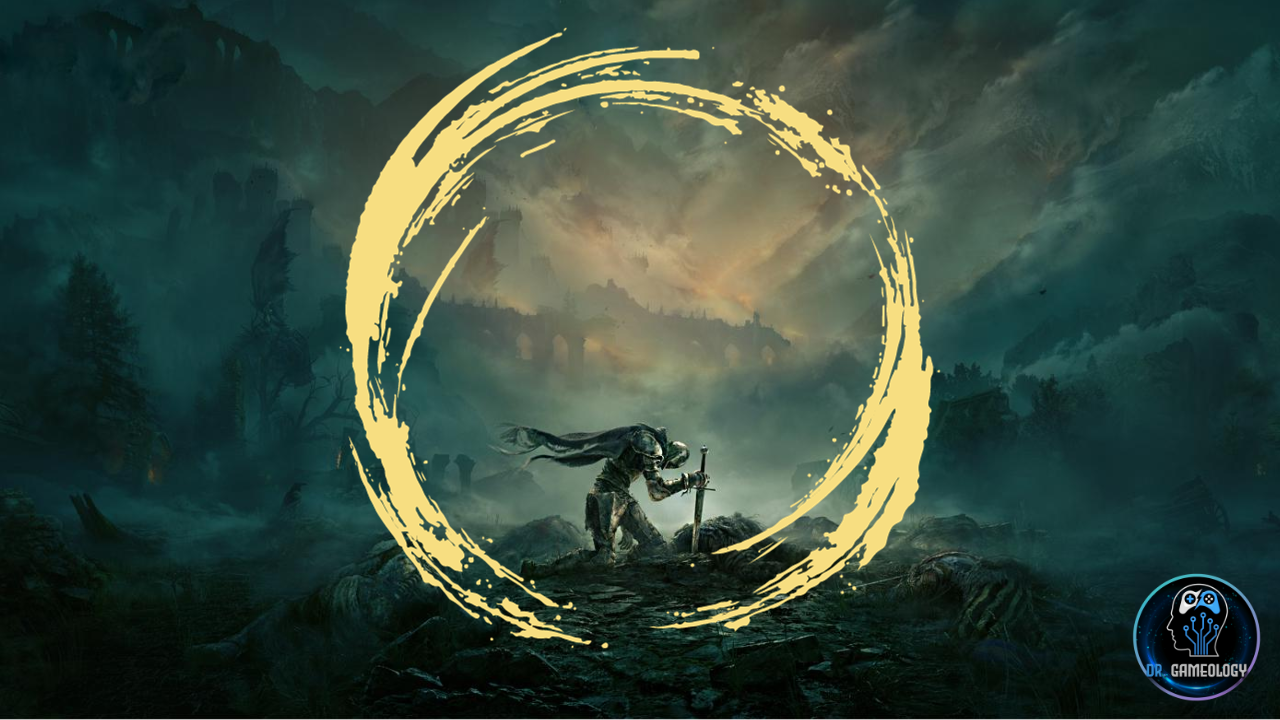Education & Video Games (featuring ESA President Stanley Pierre-Louis)
This week, Dr. Gameology and Gene explore the concept of using Education & Video Games. For that talk, we have welcomed a new guest to our show in the form of the President and CEO of the Entertainment Software Association, Stanley Pierre-Louis!!
Topics included how video games support varied learning styles, which game titles assist with learning and other important experiences, and how our soft / hard skills are used to solve complicated puzzles in rapid ways while gaming.
Download & Listen to The Gaming Persona Here:
Gaming Library:
WWE 2K22, Final Fantasy XIV Online, Overwatch 2, Wii Sports, Endeavor RX, Candy Crush, Madden NFL 2023, NBA 2K23, Mariokart 8 Deluxe, Call of Duty: Modern Warfare, Minecraft, Oregon Trail, iCivics, Papers, Please, Mass Effect: Legendary Edition, Star Wars: Knights of the Old Republic, Fortnite, League of Legends, Everquest, Pokémon
Alright, so Gene, I am excited to share that we have an amazing guest set up to talk with us about the educational properties of video games, and we will introduce him later in the episode.
The Ordinary World
Before we do that, let’s do our ordinary world where we share everyday life through our games. So Gene, what have you been up to in video games this week?
Well, not quite video game by I’m still bamboozled by the card game that we played this past week.
Oh, man, the Choose Your Own Adventure into The House of Danger.
Yeah, that game was a journey. I can’t believe where that plot ended up.
I am, I’m blown away that we did all five chapters of that game in one sitting. Because I remember I was okay. So everyone, it’s a Choose Your Own Adventure game, you draw cards and make decisions as a collective team to get your aspiring detective and amateur psychic character to not die in this house of horrors, and science projects and all kinds of stuff. And so I played the role of basically the Dungeon Master. I did some mild voice character work and kept track of the psychic meter and the threat meter and read the cards for three and a half hours of my life. And it’s a five-chapter game. So Gene, why did you why did you think about the experience of playing that game in person with me?
I mean, that was an extreme. What’s the word “Crash Course” of what that game is about? Because I’m sure when we just barreled through it rarely, we didn’t take our time to explore all the paths. We just went through and died repeatedly.
You didn’t die nearly as much as you could have, though, because I remember some of the deaths I’ve experienced in that game. And you did a pretty good job in most chapters. Except you really didn’t help yourself out by being so lackluster in chapter one.
So yeah, I’m still amazed that we, we didn’t just get a straight hard lock at some point, which is, I guess, Good Game Design. Because, you know, yeah, we didn’t have any real tools in the first until like chapter two.
Yeah, there was one part early in the game where we did get stuck in a sort of infinite loop and I had to figure out why that happened. But I ultimately think that I missed something as the card reader I don’t think that that was the game design’s fault.
Wow, that’s, that’s fun.
All right. Well, I’ve been playing many different things, at least in my opinion. I’ve been playing Final Fantasy XIV a little bit. I finished leveling up my Dancer so I have a max level dancer now. I’m now working on Bard, which is in the mid-80s. I’ve still been leveling up and evolving my cards in WWE 2k 22 and having a lot of fun playing all of my matches on Legendary difficulty.
How’s that go in that game? Do they just cheat?
It feels like it especially when I store up my finishers and all I have to do is hit them with it and then I will get a 1-2-3. And then they reverse it, which getting your finisher reversed on Legendary difficulty is so demoralizing. Okay, when you’re watching a wrestling match, you can see rapid finisher reversals happen. And they just get on their feet and try to do their finisher again. But in a video game, you have to beat on people successfully to get another finisher stored up. And if you are flashing red on your torso and limbs, they’re going to end you before you get another chance. And I just have to play strategically have caution when it’s appropriate and become aggressive, “Ruthless Aggression.” So I’ve been playing some other games as well.
I’m really thinking about getting into Overwatch 2. I have never played Overwatch. But the time of Overwatch one is over. And I feel like this would be a good time to get into the game. Except nobody’s getting into the game this week. From what I’m reading. A lot of problems. But everything I’m reading and seeing the characters and the epic quotes about being a hero. I feel like that game has captured some of the stuff that I’m all about. Sure. So I will definitely provide updates on my Overwatch journey in future episodes of The Gaming Persona. Well, this all sounds great.
Finding Our Allies
Let’s go ahead and find our allies Gene, because it’s too dangerous to go alone.
So this week, we’re really excited on The Gaming Persona to bring in a really amazing guest. We have Stanley Pierre Louis, who is the president and CEO of the Entertainment Software Association. And they are the voice and advocate in the United States for the video game industry. Stan has over two decades of entertainment and media experience, and has been on so many stages that I am jealous that I wasn’t there. And is going to be talking with us tonight about some things about the educational qualities of video games, how they can be great. And I have really no idea the depths of geeking out I’m about to do. But Stan, welcome to The Gaming Persona Podcast.
It’s great to be with you, Daniel and with you Gene, you know that that introduction is so overblown, because I need to be on the stages where you are. So I’m excited to be with you and talking about something that we both love. And all three of us love.
Yeah, absolutely. Well, we’ve started to get on more stages. So it’s all about progression, which of course is a big part of what drives me to video games. So we have so many questions to talk with you about and I know that there’s a few things that your people reached out to us and asked, “Would you like Stan to come on the show and talk about them?” So related to education in video games, and that’s something that I’ve ranted about maybe on 16% of our episodes, just random percentage, but I feel like it feels true. Because I’m an I’m an educator in higher ed and I’m a games researcher. So I just wanted to ask you to start you know, why? Why video games? Why is this the topic and the platform that you’ve become so active in?
Well, as I said before, it’s fantastic with you because of the depth of knowledge that you have and appreciation that you have for this art form. You know, video games are well known for the fun they bring for the exciting challenges they foster up and conjure up and for the beautiful graphics that they create and the great storylines and more and more you’re seeing how in depth the storylines are so much so that movies are being made out of video game IP. What we’re learning more about, and this was particularly true during the pandemic, is that video games have the power to do so many things that benefit us beyond the fun and joy that they bring. One of which is bringing us Not just joy, but bringing us knowledge bringing us opportunities to learn hard and soft skills. One of the things that educators have seen is that video games allow kids to really imagine what gameplay is like and what it’s like behind the scenes. And in so doing, introducing students to math, science, language, coding storytelling. And so you’re seeing some hard skills develop through gameplay, you’re also seeing soft skills, you talked earlier about progression, and why I love video games in progression, that that progression comes through constant failure. And you don’t get to that next level easily in most games, that engagement creates resilience coming back, and the opportunity to fail and succeed and feel rewarded for that success is a rare art form. In a lot of sports, you lose in your out. And in video games, you progress, and you learn more, and you achieve and people champion you for it. And so you’ve got that ability to really grow. When you’re playing as another character, you’re building empathy, right? You’re kind of seeing the world in someone else’s skin. So you get these soft skills. And then one of the things that educators, teachers, and parents have begun to see is that video games introduce an opportunity to create digital citizenship, what does it like to be online? What is Safety Online? How do you treat people? How do you want to be treated, and you can do so in an environment that is customized for safety, through video game play, because of the ecosystem around certain games. I think the other thing in terms of learning, and then I’ll talk about some of the broader areas in society, but in terms of learning is that learning through video games, actually allows for more inclusive, accessible, and engaging learning environments. You know, you can have playful learning, which is always fun for people because they remember the fun things, you’re able to connect with others while you’re playing. You’re problem-solving skills can be enhanced, because the education is customized for you where you are at your level. You know, changing a hard book in a grade is a very complicated exercise involving lots of approvals with video games, so you can customize that learning ahead of time so that as the student progresses, within a classroom setting, that student can get to the level that they need to be at as opposed to waiting for some other mechanism that touts their approval. So it just allows for a different dimension in terms of learning, learning capabilities, and customization. I think more broadly, video games have shown people the power of connection. And this was certainly true during COVID, when we were in lockdown, playing games was fun, playing games with family friends was exhilarating. And being able to connect with people, irrespective of location or kilo cow, you know, you could be playing with someone across the street or in Norway, and you had a powerful experience. And that connection is something that games did in a very unique way. You’re not an audience member in a game, you’re a participant, you’re engaged, and you’re a player, no matter your level. So I think that’s part of the power of games.
All right. What are the main things that ESA hopes to accomplish in the ongoing conversation around what video games are and how they impact people of different ages?
Well, you know, one of the really interesting things that we’ve noticed about games and gameplay is that everybody’s playing. So according to a study we issued earlier this year, 65% of Americans play video games, and those numbers translate around the world and high degree, one in three people on the planet are playing games. And that’s a powerful number. And what that means is there’s not only gameplay happening within cohorts, but intergenerationally, you know, the AARP, which is the association that follows the, what they call silver gamers, but also older Americans. Number one, they have found that on their website, the most popular page is the page that talks about and discusses video games and has video game play available. And they also look at the growth not only in the numbers of people over 55 who play video games, but who play games together and intergenerationally. So you’ve got this opportunity to for people who with their grandkids or others in their families, and it’s just bringing people together. So part of what we really want to do is humanize games to people who don’t appreciate the immense pleasure people have but also how they connect people. And a lot of our audience is in terms of ESA, our policymakers. We talk to people at the state and federal level, who lead is late and regulate all kinds of issues. You know, games have a history of being over regulated. And fortunately, we’ve been able to stave that off and allow that free expression to occur. But some of those impressions still last. And when we talk to a policymaker, the first thing we ask is, “Does anyone in your life play games?” That turns the conversation around immediately, because everyone has a spouse, child, a neighbor, a friend, a family member, playing video games? You know, there’s a, an older senator who I talked to and ask that simple question. And his response was, you know, actually, I’m an old fighter pilot. So I do flight simulator every night. You know, and, and that connection changes the tenor of a conversation about what does it mean to be a video game player? And I think that’s what people appreciate about the conversation is that they realize that it’s part of all of our lives, and it’s having a positive aspect. It’s the digital playground for kids. And it’s a connector for older adults.
I think to some of the games that are most well-known, people might have strong opinions about them and look at them, like they’re just silly, fun or immature. And then they might, without a question like that they might transfer all those feelings to this broader word that we call video games. And by asking a question like that, it makes them realize that video games are many different things. You know, it’s sort of like this strange metaphor, perhaps. But if you have a problem with one specific ethnic cuisine, and then the conversation you’re used to is “I dislike food.” And I was an intern getting ready to be licensed as a counselor, back when the Wii was really big. And one of the most popular therapy days in the program where I did groups, was when we would bring out the Nintendo Wii and play Wii Sports, and do the baseball and the bowling and the tennis. And because those were really good, you could get multiple people doing them or pass the controller around. And these are often middle aged to older adults with a mental health diagnosis, they need group therapy, and all those passive benefits of learning to share the resource of the remote, and be friendly and passing it to the next person, pay attention to the order, treat people fairly acknowledge, you know, who’s next in line, you know, cheer for people when they succeed. And, you know, this is a socialization program that I’m counseling in. And that was a while ago, games can do so many things that the Nintendo Wii could not do now. So it’s, it’s compounding in some of the best ways imaginable. And I think it’s so cool that you brought that population in automatically, because I was loading up a question like, “Oh, I’m going to ask him this next.” And then, ESA is already on top of it, you already are seeing those.

You know, I acknowledge a lot of this is trial and error, right? You start a conversation in a different way and then all of a sudden, you see that this one thing seems to resonate with a through line, which seems like such a simple question. And yet it opens up doors about you know, I don’t know, I had someone say, I don’t play video games. I just do Candy Crush every night before I go to bed. Every night? Yeah. Okay. And that, again, talks about the perception people have about it versus their own experience. And someone that is language gamer versus player do you play games. And so when you ask it in a broad sense, it invites that conversation, if you’re very specific about game, or I think people have an image, and which I think is a valid image and a good one to have. But I think the different audiences, when you really humanize it to how they interact with games, they don’t have all the coded language of industry, they have what they do. Which is funny, you know, one of the things you were talking about was the use of video games, in counseling and in the medical profession in some way. And it’s been interesting to see the growth of video games in the medical profession. And I sat with some physical therapists who had trouble getting particularly seniors to do the exercises for rehabilitation, sometimes just moving your hand and the like. And yet, if you’re trying to land a plane with the Kinect technology, you’re actually doing the exercises more than prescribed because you’re having fun, and you’re getting better faster. And so you’re seeing these little simple tools with these uncomplicated games that are at you know, bells and whistles, exciting patients doing physical therapy, and you’re also seeing it used in as you know, the treatment of ADHD I think the first ever FDA approved.
Endeavor RX, Yeah.
And that’s exciting. There’s the medicine, or the video game treatment for the condition popularly known as lazy eye. And that was really discovered by a pharmaceutical company trying to figure out how they get the benefits of training, to remote locations where you can’t necessarily get all the equipment, and decided people love video games, they have access to games on so many devices. Let’s work with a company, in that case, Ubisoft to develop this technique of using a video game to impact positively a visual impairment. So you’re beginning to see it’s for fun, but that fun can also translate into healing in a very literal way. Right? Not simply, oh, it’s healing to play and feel good, but literally healing the body through the use of video games.
Yeah, so you mentioned Ubisoft. I feel like this is a perfect segue. What are some of the most prominent video game titles that come up in the conversations ESA handles? You know, you mentioned Candy Crush, that’s like, a top five always because non gamers play it and don’t count it as a video game until you call them out and smile. But, you know, I love Ubisoft, they have so many games that have been important to me, as a game player and as a person who brings those into therapy session. So I’m just curious, what are some of the heavy hitters that build those pathways for your mission and, and the resulting discussion.
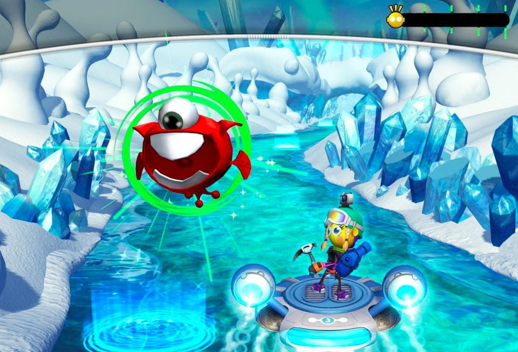
So a couple of things, which I think are really interesting one is, and people don’t realize this, the overwhelming number of games that get released and rated are for ages teen and younger. So it’s, you know, and then people don’t like they don’t recognize this. So there’s an organization, the Entertainment Software, Rating Board ESRB, which rates all the games and provides a lot of information and resources to consumers, especially parents about gameplay. And in their most recent assessment 50% were rated EA, another 16. Were, you know, EA 10 +, and another 22 routine. So there is a game for everyone. And overwhelmingly, it’s a game that’s appropriate for the overwhelming number of the population. So I think that’s one of the exciting things people don’t realize. The other is, you know, as ESA we represent large and small video game makers, console, makers, publishers, developers, and it’s everyone from Xbox and Sony and Nintendo and take to Electronic Arts Activision Blizzard, down to legends of learning, which has a handful of employees who make these great games in the sciences and the math, arts. So we really represent the broad scope. You know, because we work in Washington, and we’re working with a lot of policymakers. You know, they’re really interested in some of the popular games that their constituents play everything from the Madden games to Mario Kart, Super Smash Brothers ultimate, you know, sports games, racing games, first person shooter games, it’s really interesting. There are many members of Congress, but also people in Washington who were military vets. And for them, one of the really connecting games is Call of Duty, and they played overseas, and they continue to play with their fellow vets when they’re back home. So it really is a range, there’s no one particular game, because what we ended up seeing is, every audience has a game that they love, and really is important to them, you know. So I think we ended up talking about all manner of games. And we also do this really exciting things for legislators and their staff, which is, we will either bring in physically or more recently, virtually, developers to talk about the making of NBA 2k to talk about the making of, you know, the Riot Games, right. So we really use that opportunity to explain to policymakers, the Art Craft beauty of creating these excellent games and all genres, and then demonstrating to them how it works. And that helps them and understanding as they’re regulating the impact that they have on the VR game Arts and Sciences, and what we produce and how we inspire audiences everywhere. And they’re always surprised at how connected their staffs are to the games because they’re in deep. I mean, it’s really interesting. They ask very specific questions about character development and about why do you choose this versus that it’s so talking about geeking out there are a lot of people currently working in government, particularly young staffers who find a lot of joy in not only playing the games, but learning about how they’re made.
Is there still a separation between, like strictly educational games like, say, the Oregon Trail versus normal games, quote unquote, these days?
What I would say is, there are, there are some games that really cross the popular and educational field, I think most of the games in the educational sector are really targeting an educational outcome. And I think that’s because you can customize it a certain way most major games are really intended for that broader audience and to bring joy fun, and the like. That said, you’re seeing increased, opportunities being met through for education through popular video games. So for example, Minecraft, immensely popular game around the world under fill, right. And that open world game has also been translated into educational focused games, which has helped tremendously in encouraging language development, math, development, and all sectors of education. So it’s, it’s great for that. Minecraft also has partnership now with the Nobel Foundation, and has a whole museum area to learn more about the Nobel laureates, whether it’s for the Peace Prize, or the various sciences. And so you’re seeing the use of that game in a special way that appeals to young people for education. There is actually an Education Edition of Assassin’s Creed. You know that and you know, if you know, Ubisoft, you know that they really research the background of the period of time periods when they make a game. So much so that, you know, when you’re teaching history through some of the Ubisoft games, you’re learning real facts. And that’s exciting. And it was wonderful to see, after the horrible devastation of the burning of Notre Dame, they had so many amazing photo images of the church, that cathedral, that they are able to provide it for them so that they will restore it, it’s just exactly where it was. So just the deep amount of research. And so that’s been used in some educational settings.
There are other games that I think are worth calling out there from smaller companies, but really exciting. An interesting. one is called “Papers, Please.” And it’s a game that cultivates empathy and understanding of the immigrant experience. What does it mean to enter United States and get your papers? And what is the immigration experience like and how do you make it easier? So that’s kind of an interesting social game and understanding a political and regulatory issue. And another one is focused on teaching civics, to today’s middle schoolers. You know, there was a very famous woman who was retiring from a very high office, she wanted civility to be somehow embodied within our educational system, because she saw that in Washington, conversations weren’t happening one on one, but they were past each other. And she talked to a group of people and said, “How are young people connecting?” and they said, “video games,” she said, “So we’re gonna make a video game.” And it’s going to teach people civics. And that woman was former Justice Sandra Day O’Connor, and her game is called iCivics. It is the largest provider of civics education in the country. It is free and online, and it’s a game. Most of the schools are a huge portion of them are titled to schools, which means kids are getting free lunches there. And they are learning how to communicate through dialogue. Even in areas that are tough, whether it’s election cycles, or immigration, they are learning how to be civil through a video game. And it’s really powerful to think that that’s the legacy she wants to do I want a library a statue now, I want people communicating and making this country better and what better monument than something like iCivics.
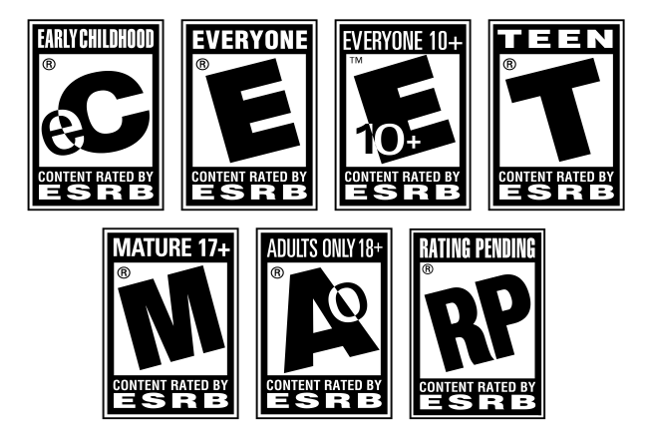
That really connects back to where this conversation started, which is developing skills, understanding progression, the ability to do something poorly, but then try again and again, until you can do it. And that whole idea of talking past people in counselor education, which is what I teach, there’s this premise called active listening. And I don’t know that there’s a game yet that teaches people to listen and reflect and use probing questions and, and include elements that you heard, really heard what a person just said to you rather than just being a parrot back at them. And I really feel like since I came up in my doctoral research are looking at Bioware games and their conversational trees, I feel like it would be very doable to just create a game with instant feedback, some kind of scoring some kind of concept of this was a successful, moderately successful, minimally successful conversation. And, you know, I really actually think games like Star Wars Knights of the Old Republic and Mass Effect, I think games like that might be a big chunk of my grasp on conversations in what I do, because I get this idea, before I’m done saying something of how it’s going to be heard and how it’s going to impact the Response List of my conversational partner. So you’re talking about that with kids with civics with different kinds of classes with a specific prescribed agenda for what’s being learned. And it’s just so interesting that your organization talks about this thing that I just go through life thinking I know this. So that’s so cool.
Well, I you know, you’re pulling together in a very clinical way, and deconstructing what I think is happening in society, which is what’s interesting, because you’re able to observe it, and give it context and give it nomenclature. I think the beauty of what’s been happening in real time is that games have become part of that fabric. You know, the kind of research Zeitgeist at one point where we were talking about the economic, economic numbers and all those things. But the truth of the matter is, the pandemic kind of shifted our thinking about “what is the power of games,” and it’s not just playing the games, but it’s that connection, and what we’re growing as or through. And I do think people are recognizing it more and more, they’re, they’re assuming that games are a force for good. And we saw that in our survey. I mean, like, 97% of all Americans believe that video games can have positive benefits. If we asked that question 15 years ago, you know, we would have been close to the 3% by law. But I think, you know, people have seen “Oh, my kids on Fortnite,” and then “oh, wait, he’s with his cousins,” or “she’s with her friends.” And they’re recognizing that there’s something positive happening. And something that’s harder to do, we couldn’t travel together, but we could be with each other in a powerful way. It is fun hearing you contextualize it, through your counseling lens, we should all be on the couch, you could probably you’d probably unpack a lot for us about active listening and the like,
You know, one of the people whose work was really influential to me early on, and work for Ubisoft is a researcher named Nick Yee. And one of his papers I read as a grad student really just said at the end, final paragraph, “video games already are the perfect personality test. The game developers, we just have to look at the way people play with that agenda.” And that set of sentences were not the most relevant story part of that publication. But they just have continued to grow inside of me in the way that I do the therapy sessions I do in the research. So I just wanted to share this story with you, Stan, because it happened to me this week, one of my students read my bio, in the online class, found out what I what I do, and I was sharing some information about my most recent research that was presented in Poland earlier this year. And she gave me this really quick story, it’s all typed. So you know, just asynchronous communication online, like an email, and saying, you know, I have my son, he’s such and such years old. He plays video games a lot. He doesn’t seem to understand boundaries of time. He doesn’t listen to anything people are saying when he’s playing, you know, all the all the stuff that says, you know, my eight-year-old is going to become a bad person because their hands are on a game controller. And I just replied, you know, play is an important mandatory part of healthy development, whether it’s video game play, or playing with Legos or some other form of blocks or going outside and learning to play a sport, you know, plays play is play. And I’m just wondering if eight-year-olds are supposed to have a grasp on all these other things that you listed. There are signs that this play is bad. And, you know, I just encourage you to think about what you’ve learned in your developmental psychology courses and how that flips everything you’re observing in messages like this. She’s like, “you’re absolutely right. I never thought about using that particular class to try to understand this. But that’s a really good point.” And I think that that’s kind of the where a lot of parents, a lot of teachers that maybe are not necessarily anti gaming, but they’re not overtly pro gaming, either, that they see these signs that 12-year-olds are not acting like, responsible 26-year-olds, and it’s like, “Oh, this 12 year old will never be a responsible, 26 year old.” And as a counselor all the time, I’m just like, scratching my head. What do you want me to do? Because I’m seeing a 12-year-old who likes to play things. And the particular things they play happen to be electronic in nature. So how much of that with politicians and other groups of people is, is part of this ongoing conversation? Would you say?
Well, yeah, certainly the power of play resonates with people because you can spread play out to lots of different areas, whether it’s video, game, play, sports, play, you name it, and I think that resonates. It’s funny, when you started talking about children, there was a saying, I remember some preschool, you know, which is that play is the work of children. Right? And so when you see them playing, and you go away, why, what are they doing here, you’re learning actually how to play with one another, you’re learning because when you’re playing with Legos or blocks, oftentimes, you’re actually playing with other people. And you’re learning socialization skills, and then that kind of develop on into all the other things we do. You know, the term of sportsmanship and all those things come through play. And really, with the growth of eSports, you have an opportunity for people who love playing video games competitively, to learn some of the skills that you may not get sitting by yourself, or the headset playing games. Because when you’re out playing soccer, or baseball, or whatever the sports are, you’re learning to be a gracious winner and a gracious loser, you’re learning to shake hands after the game, and that you should be friends after the sport. It’s really easy in the online world to forget that you’re part of a community. Because you’re playing alone. And I think one of the things both in the education of play and through eSports young adults are learning that there is some grace involved in play, that it’s not just about the wind, but about, you know, what does it mean to play together? What is coop playing? Like? What, what are the ways of us connecting and saying good game afterwards, instead of being upset? So I think I think that resonates when you make the comparisons. A lot of politicians early on, they have a difficult time understanding why people watch other people play games, it makes no sense…
Do they watch football on Sunday?
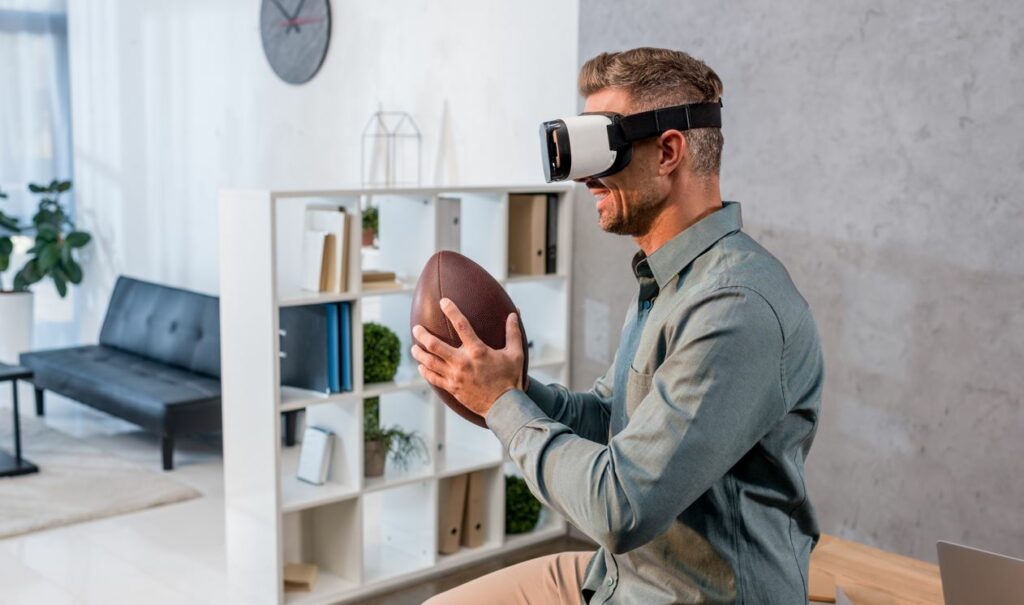
![]()
Well, that’s exactly. And that is exactly the analogy, whether it’s car racing or football. They don’t understand the fact that people are watching other people play games. And once you bring those analogies, they don’t get it at first. And then you say, “Well, you know, part of what people are seeing in gameplay is the technique being used is the high level of skill.” You know, I can watch football and tell what’s happening. For the most part, I can’t tell you what’s going on inside the line. And this amazing block is what broke free for you know, I can’t tell you all that nuance. And certainly if I’m watching hockey, I can’t follow the puck, I need that new AR technology. Or you know if you like to golf, it’s like I mean, that’s a vast space. Once you start humanizing gameplay and analogizing it to these other real-world sports as they see it. It turns out, it’s more exciting than chess, right? In many ways. It’s, there’s, there’s more activity, there’s more emotion. There’s more emotion around it. And you know, that’s why you’re seeing it on, you know, ESPN three and other places where they show tournaments. So I think we try to bring those analogies so that people understand the context. And it is a new phenomenon that that is hard to, like really grasp at first. And even the first few times you make the analogies it’s it’s hard people to get but at some point, they realize I’m never going to drive a Formula One car as fast as they do. I don’t even understand what’s happening. But I know that there’s tremendous skill in what they do. So and it gets humanized. When you have an f1 series show on Netflix that people can watch for two or three seasons ago. Oh, that’s who Lewis Hamilton is, right? Because it’s a sport where you’re covered in machinery and logos. Like it’s not a sport where you can humanize the person. So more and more as games become part of that fabric on regular television, regular cable television. People start to accept that it’s normal. If we’re watching cornhole tossing, we can watch eSports.
That that Chess comparison. I literally a couple hours ago, was talking about how I’m pretty sure League of Legends is a faster video game version of chess. I’m not sure because I don’t play League of Legends. But you know, in that in that analogy, I’m the I’m the person who’s not in the know. And I, I love video games, but there are some of them that I just don’t I don’t look at them and see that interworking and, you know, genres. Again, we’re back to the whole, like, what style foods do you like to eat? There are so many different kinds of video games, there’s different genres. There are hybrid genres now. And they all serve different purposes and have an audience somehow. Gene, I also did notice that I spoke right through you there. Do you by chance, remember what you were about to say?
Oh, well, I had a question of, well, in the 2021 report, on the benefits of video games, and K through 12, education, there was a number of takeaways on how games relate to learning. Would you mind talking a little bit about that, and how it fits into the mission of the ESA?
Yeah, that’s a great year, we are really excited to partner with the group of academics that teach in colleges and universities all around in the Video Game Arts and Sciences. And they really led the study. And they were really interested in seeing the development of K through 12, and how it leads to opportunities in college learning in college degrees, and then ultimately, in creating games. And they really examined what are the soft and hard skills. And that’s where we really saw the insights around the fact that video games develop hard skills, like the math and sciences, the soft skills, like resilience, and empathy, and digital citizenship. And that was a big one, because, you know, kids online, on the internet, don’t necessarily have all the safeguards that they have within the ecosystem of certain games, or on certain platforms of games, where you can set parental tools and proto controls. You know, one of the great things about the devices in the industry is, as a parent, you can manage the amount of time the amount of money and even Internet access that children engage in on the internet, and on in gameplay. And it’s, it’s, it’s something that really resonates with policymakers, because we provide parents with the tools, and it empowers them to make choices about what kinds of games they want to play, whether it’s on the readings or not, and how they want them to engage with others, if at all. I think that’s a powerful understanding of digital citizenship, and I have a 16-year-old. And he has to check in with me before he makes any purchase, because there’s a block on it because I have to manage the purchases, that creates this dynamic where Number one, he has to talk to me. And so I always get at least one conversation a week if you need to upgrade something or get a new character. But it also reminds him that there is oversight in what’s going on, the tools are saying, you know, go check in with your parent, what’s great about our tools, you can also have them on your app, so you can track things on your apps, you can control the time on your app, so you don’t only have to be on the device, you can actually do it remotely, which is great. And then I think the other points that they really identified, which I think were powerful were the fact that you could really customize education for students, and within the same classroom, allow some students to advance where they need to and allow other students to get drilled a little bit more in areas where they’re finding challenges. So I think we just learned a lot from the study about the dynamic way that video games can encourage learners to learn at their pace, and in a fun and exciting way.
All right. So I think this might be kind of the going home question. But what do you see or envision the future of educational video games to look like in the next five years? 10 years? You know, where are we going?
Well, you know, it is exciting to see the growth of educational video games and the use of a lot of popular IP to help teach kids. And I think as the younger population gets older, and games are normalized in their lives, the ability to use games with more flexibility and with more dynamism really becomes a natural consequence. And I think that’s what’s great. Like I talked earlier about the fact that when we talk to some of the older policymakers, we first start by talking about their relationship with games. When we talk to younger people in the political world who are making a lot of the rules under which we’re living, they already have a keen understanding of the power of games, they still game. And they think it’s an important component. And so I think the more people view games as not only a great entertainment vehicle, but also a learning vehicle, the more demand there will be for educational games, which means you’ll have more investment, and more exciting IP in education games. So I think the sky is the limit. And I think, as people who play games have the opportunity to use games in more parts of life, whether it’s education, or just teaching life skills, the more you’ll see games as a normalized function of our lives. And I think that’s a beautiful and powerful thing, because of what games bring.
Wow, that is outstanding, Stan, I’ve had a lot of fun listening to you talk and gain to share a few anecdotes from, from my work. Like, you’re doing such an amazing job, I’m really excited to hear that you get access and opportunity to talk with the people you do through the work of the ESA. And, you know, if there’s ever any way that I can help the cause, I would jump at that in in less than a second. It just sounds like exactly what I’m all about.
Well, it’s always exciting to people to talk to people who really live a life where games are not only front and center, but an important part of the dialogue of how we learn and connect and interrelate. So I think it’s a lot of fun. And I’m excited to see what the future holds. And I will hold you to it. And although Gene didn’t raise his hand, I assume I can make use of Gene to help save the world through video games as well.
There are some Co Op challenges we’ve pulled off where I can honestly say there is no Dr. Kaufman, without the exploits of Daniel and Gene. We’ve talked about that a few times, just the last month or so. Well, thank you so much for making the time and being with us on our show. And I can’t wait for people to hear this conversation.
Thank you so much. And thank you for what you do for games. Absolutely.
The Return
And now it’s time for The Return where we go back to our daily lives and take our next step forward. Gene, how great was that conversation?
That was really great. I was not aware that people the educational community was becoming more receptive to these concepts. You know, because you know, when we were growing up, all we had was like the Oregon Trail or number muncher?
I’m sure we had some teachers in high school that were into EverQuest, though.
Yeah, I wouldn’t doubt that.
I mean, I definitely can imagine a few of them playing during their grading period. So I, you know, it makes a lot of sense to me, just from the standpoint of, I’m an educator, I made it to the very end of the game that we call academia. And I love video games. And I think that that’s the story for a lot of people who have the title of educator now. So it was only a matter of time before the changing of the guard was going to happen. And people who educate look a lot more like me than they look like my parents. You know, same thing with mental health professionals and almost everything across the board. It’s been quite a long time since I was trying to convince my parents that Pokémon are not demons and I should be able to play.
I know some of those people out there still think there are demons.
I know. I actually on that topic. Sadly, I saw a post about that on Facebook earlier this week. Someone shared it in order to get some laughs You know; they weren’t spreading it themselves as a thing that they believe. I don’t repost or retweet things like that, because I feel like that’s giving a stat to a point of view that completely lacks credibility.
Yeah, I would agree with that.
Yeah. So that’s just my social media policy. And actually, my greatest pet peeve and my personality type is when an incompetent person is granted the prestige of being an authority on a topic. Yeah, I was looking up INTJ stuff this week. But back to the conversation I really loved how well-versed Stan was with all the different things game studios are doing to highlight the educational properties in games. So the, the ESA organization is definitely being run by a really good person, just like such a great conversation. And, you know, I, I’m just going to say it, “I’m honored that we were able to have him on the show.”
Yeah, it was. I mean, that was really informative for now, even if that sounds but for our listeners.
Yeah. So if these conversations sound fun to you, and you’re looking for some great people to play online games with, you can check out AIE at aie-guild.org. And I have one last quest for everyone to collect for the day. Find your progression and learn from it and
Continue the Journey.
Be sure to check out more amazing episodes of The Gaming Persona!!
Important Links
- @DrGameology – Twitch
- Apple Podcasts – The Gaming Persona
- Spotify – The Gaming Persona
- Google – The Gaming Persona
About Stanley Pierre-Louis

Stanley Pierre-Louis is the President and Chief Executive Officer (CEO) of the Entertainment Software Association (ESA), the voice and advocate for the $43.4 billion U.S. video game industry. With more than two decades of entertainment and media experience, Mr. Pierre-Louis leads ESA’s public policy efforts to showcase the dynamic impact the video game industry has on business, entertainment, and culture.

